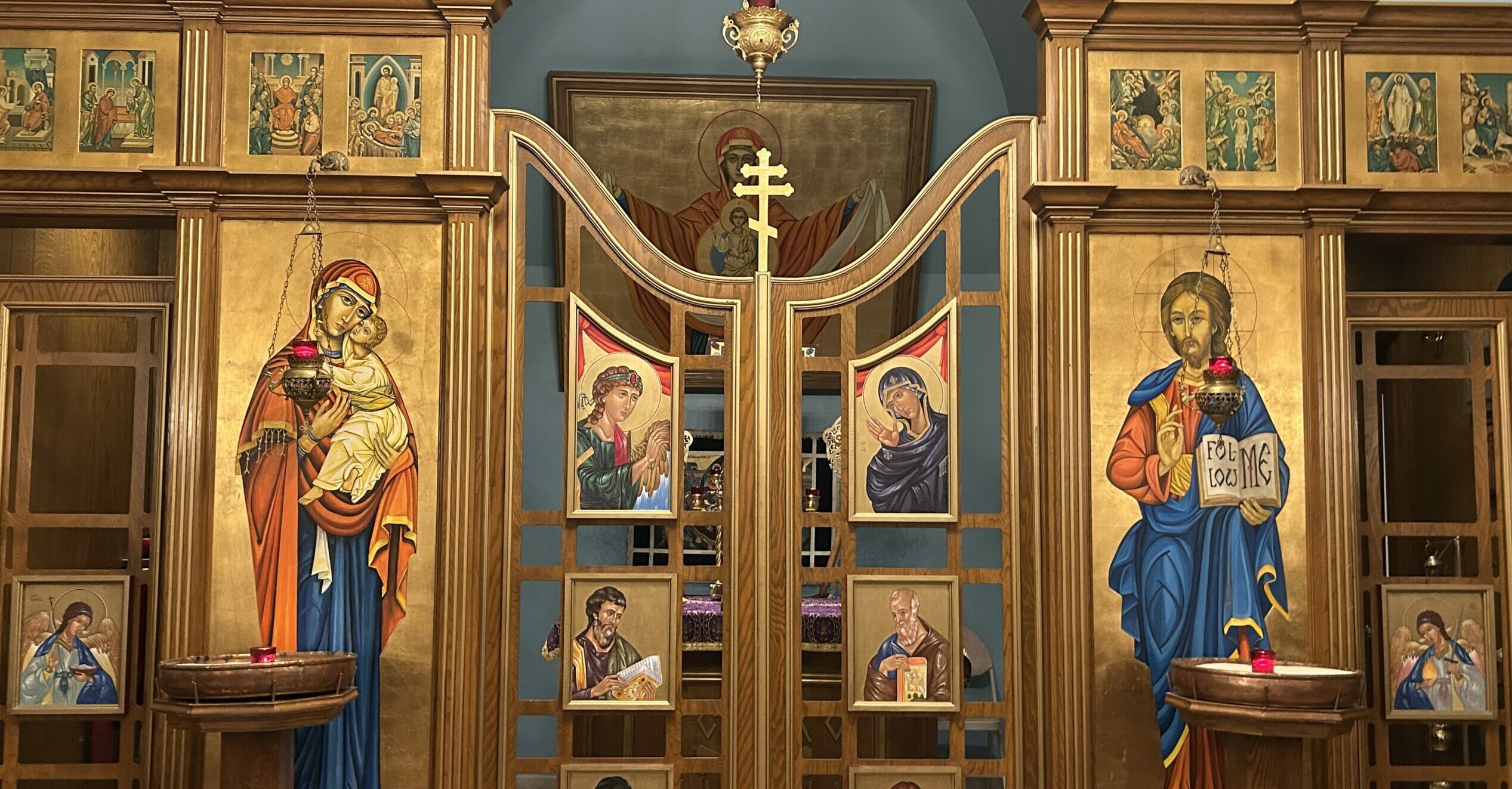Last week, on the second anniversary of my Mom’s passing, I went to my sister’s Byzantine Catholic Church for Vespers of St. Andrew of Crete. My brother-in-law sang the litanies as you can hear in the audio example below.
Vespers was three hours long, as it went through all of Salvation History. In the litanies that night, every person compared himself to each sinner of the Old Testament and New Testament. I sang in Byzantine tones that I myself was worse than each one of those Biblical sinners. So did everyone else in that little Eastern Catholic Church. We made nearly 300 nose-to-ground prostrations, begging for God’s mercy. But it wasn’t a slovenly or sloppy request for mercy. Neither was it shallow. There was sadness and hope infused into every tone in this Great Fast.
Here’s an example of the refrains:
O righteous judge despise not Thy works, nor turn away from Thy creation, but in Thy compassion do Thou forgive me, even though as a man I have sinned more than all, for as the Lord of all, it is within Thy power to remit sins.
Refrain: Have mercy on me, O God, have mercy on me.
The end draweth near, O my soul! The end draweth near, yet thou dost not care or make ready. Arise! The time is short! The judge already standeth at the door, like a dream the days of our life pass as quickly as a flower. Why dost thou trouble thyself in vanity?
Refrain: Have mercy on me, O God, have mercy on me.
Awake, O my soul, consider the evil things thou hast done. Set them before thine eyes and allow thy tears to flow. Then with boldness confess thy deeds and thoughts to Christ, and so be justified.
Refrain: Have mercy on me, O God, have mercy on me.
There hath never been in life a sin, or deed, or wickedness that I have not committed, O Savior. I have sinned in my disposition, my thoughts, my words, and my deeds. There is none that hath sinned more than I.
Refrain: Have mercy on me, O God, have mercy on me.
For this I the wretched one, am condemned in the tribunal of my conscience where the judgment is more compelling than that of any on earth. O my judge, Who didst redeem me, Thou knowest my heart, spare, deliver and save me, Thy servant.
Refrain: Have mercy on me, O God, have mercy on me.
The ladder which long ago the great patriarch Jacob saw, is an example O my soul, of approach through action and ascent through knowledge. If thou dost will to live aright in action, in knowledge, and in contemplation, renew thy life.
Refrain: Have mercy on me, O God, have mercy on me.
The patriarch endured the burning heat of day, and the frost of night, enduring privation making daily gains of sheep and cattle, to gain his two wives.
Refrain: Have mercy on me, O God, have mercy on me.
By the two wives, we understand action, and knowledge in contemplation Leah is action, for she bore many children, Rachel is knowledge for she endured great toil, for without toil O my soul, neither action, nor contemplation, will accomplish anything.
Refrain: Have mercy on me, O God, have mercy on me.
I noticed that one of the overlaps between “modernist Catholics” and Protestants is that the message of Lent often becomes “Isn’t it all great we are saved?” But in ancient Western and ancient Eastern hymns, the message is a deep and grinding mix of dread and hope for one’s salvation.
For example, one of the lines we sang in Vespers was: “Fallen beneath the blows of the thieves, you are cruelly wounded, O my soul, and you have been delivered to the fury of the Enemy by your own sins. But in this privileged time, cry to the Lord with compunction. You gave life to hearts without hope, O Savior, now raise me up and save me.”
Notice in the above song I admit fully: I have done nothing good and yet I know the Savior can give hope to the hopeless. I have wounded not just God, but even my own soul with my sins. My sins have handed me over to satan, so now I beg the Savior to snatch me back from the Enemy of human nature.
Honestly, I didn’t realize I was in such need of repentance until halfway through the service, but the words and the tones helped me. That is why we need the Church, especially in “privileged times” (as the song sang.) So, I threw myself into real repentance for the sins of my life. After 300 prostrations, my quads were burning the next day!
Here’s two brief examples from Vespers combined into a single audio clip:
